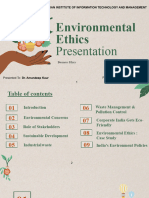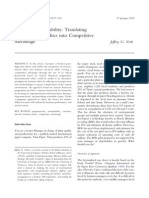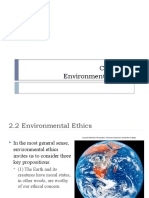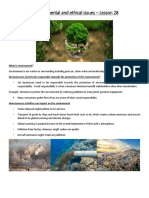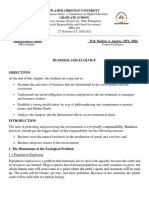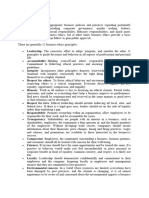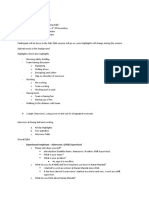0% found this document useful (0 votes)
22 views39 pagesM8S2 POWERPOINT Environmental Ethics
The document discusses environmental ethics, focusing on the obligations of businesses and the government in addressing environmental crises. It highlights the tension between profit maximization and moral responsibilities, emphasizing that businesses should not undermine environmental legislation while also noting the role of government in correcting market failures. The text also explores different ethical perspectives, including biocentric and homocentric ethics, and argues for the intrinsic value of nature beyond human interests.
Uploaded by
Charles UyCopyright
© © All Rights Reserved
We take content rights seriously. If you suspect this is your content, claim it here.
Available Formats
Download as PDF, TXT or read online on Scribd
0% found this document useful (0 votes)
22 views39 pagesM8S2 POWERPOINT Environmental Ethics
The document discusses environmental ethics, focusing on the obligations of businesses and the government in addressing environmental crises. It highlights the tension between profit maximization and moral responsibilities, emphasizing that businesses should not undermine environmental legislation while also noting the role of government in correcting market failures. The text also explores different ethical perspectives, including biocentric and homocentric ethics, and argues for the intrinsic value of nature beyond human interests.
Uploaded by
Charles UyCopyright
© © All Rights Reserved
We take content rights seriously. If you suspect this is your content, claim it here.
Available Formats
Download as PDF, TXT or read online on Scribd
/ 39






























